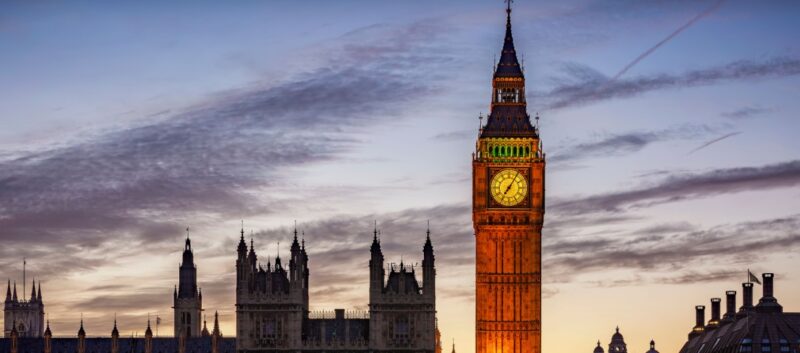As a British expat living in Hong Kong, it’s possible that you might be considering returning to the UK at some stage in the near future.
There could be various reasons for this:
- You could be at the end of a fixed-term contract
- You may need to return home for family reasons
- You could be getting close to a retirement you’d always planned to spend in the UK
- You may have doubts over your long-term prospects in Hong Kong and sick of being unable to travel
Regardless of the reasons, and whether your return is imminent or still some way off, it’s something that you need to plan carefully.
As with any big upheaval for you and your family, it’s crucial to have a clear understanding of the financial implications.
Read on for some of the key financial issues around returning home that you should consider.
1. The difference in the cost of living between Hong Kong and the UK
The comparative day-to-day living costs in the UK and Hong Kong can vary. Much will depend on your lifestyle, the size of your family, and where you end up living in the UK.
Figures produced by World Data show the UK to be the 19th most expensive country to live in, and Hong Kong the 29th.
Within the UK, however, there are big regional variations. The centre of London is generally considered to one of the most expensive places to live. But outside the capital, the cost of living can be much cheaper, even in bigger cities such as Birmingham and Manchester.
2. Taxation and tax planning
Compared to the low-tax regime in Hong Kong, taxes in the UK are high.
UK Income Tax rates are in excess of those in Hong Kong, at up to 45%. Furthermore, the UK has taxes that are not applicable in Hong Kong, such as Capital Gains Tax and Inheritance Tax.
Also bear in mind that National Insurance contributions (NICs) are payable on most forms of income. Both employer and employee NICs are going up by 1.25 percentage points in April 2022 to fund social care provision and the NHS recovery from Covid.
If you’re moving back to the UK after a decent period away, it’s worth taking some time to work out how a different tax regime could affect you and the net position on your savings and investment income. We would also recommend that you consider pre-arrival tax planning a priority.
It’s essential to plan your tax affairs carefully, using experts where necessary to avoid an unwelcome and unexpected tax bill.
3. The cost of currency exchange
If you’re moving back to the UK for good, it’s likely that you could have substantial financial assets to move back with you.
Again, there are tax implications around doing this and we’d strongly recommend you get expert advice.
On top of that, there’s the actual cost of transferring your currency, and ensuring you get the best possible exchange rate.
As you can see from the chart, the exchange rate from Hong Kong dollars (HKD) to UK sterling has been relatively stable over the last 12 months, varying between 10.3 and 11 HKD to the GBP.

Source: xe.com
However, if you’re exchanging large sums, you’ll want to get the best possible rate you can. The rate has fluctuated 7.7% in the timescale illustrated. That may not sound like a lot, but on a big sum of money, such as £250,000, that’s more than £19,000.
We would recommend you use a currency exchange specialist. They will be able to access a series of exchange tools that can help you get the best possible rate on your money.
4. The impact of inflation
The latest inflation rate in the UK is 5.4% – the highest it’s been for over 30 years. It’s anticipated to peak at around 6% in 2022 before falling back later in the year as some of the inflationary pressures recede.
However, it may well be some time before the UK starts seeing the low inflation rates it’s enjoyed in recent years.
This makes it imperative to take a higher-than-average inflation rate into account when you’re planning your finances. For example, the purchasing power of your cash savings will reduce, and you’ll want to consider your investment strategy carefully – especially if you’re taking income from your investment holdings.
5. The cost of your children’s education
According to a 2021 report by the Institute for Fiscal Studies, the average private day-school fees are now £13,700 a year. The cost of boarding school will be considerably higher than that.
The UK government put university fees up to £9,250 a year in 2019. Bear in mind that just covers the cost of tuition. Accommodation, course equipment and subsidence add a substantial amount on top of that.
6. Healthcare costs
Even if you’ve only kept half an eye on the news from the UK in the last couple of years, you’ll be aware that the NHS has been put under severe strain by the impact of the pandemic. The whole service has treated the pandemic as top priority, with the resulting impact on other treatment and facilities.
It’s likely that, even when the pandemic ends, the effect on public health in the UK will be long-lasting.
So, you may think it prudent to take out private health insurance for yourself and your loved ones. This may not cover any emergency treatment or for severe illnesses such as cancer, but you’ll get valuable peace of mind knowing that you’re covered for a range of other illnesses.
According to Unbiased.co.uk, the average cost of a basic private healthcare plan is £125 a month. That will increase each year according to your age and will be higher if you have any pre-existing conditions or require specialist cover.
Cashflow forecasting can help you plan ahead
When you’re looking at the financial implications of moving back to the UK, cashflow forecasting can give you an invaluable insight into your future financial position. With this insight, you’ll be able to make informed decisions about your plans.
We’ll input all your financial details – including assets, liabilities and projections of future earnings – and then make assumptions around external factors such as inflation and investment performance.
This will give you an immediate snapshot of your current position and will give you a clear of idea of how you should look to structure your finances in the immediate future.
By then reviewing your situation annually, you can stay on track by making any required adjustments.
Get in touch
If you’re in the process of planning your return to the UK, or even if it’s only a half-formed idea at the moment, please get in touch.
You can contact us by email or, if you prefer to speak to us, you can reach us in the UK on +44 (0) 208 0044900 or in Hong Kong on +852 39039004.




 Production
Production
